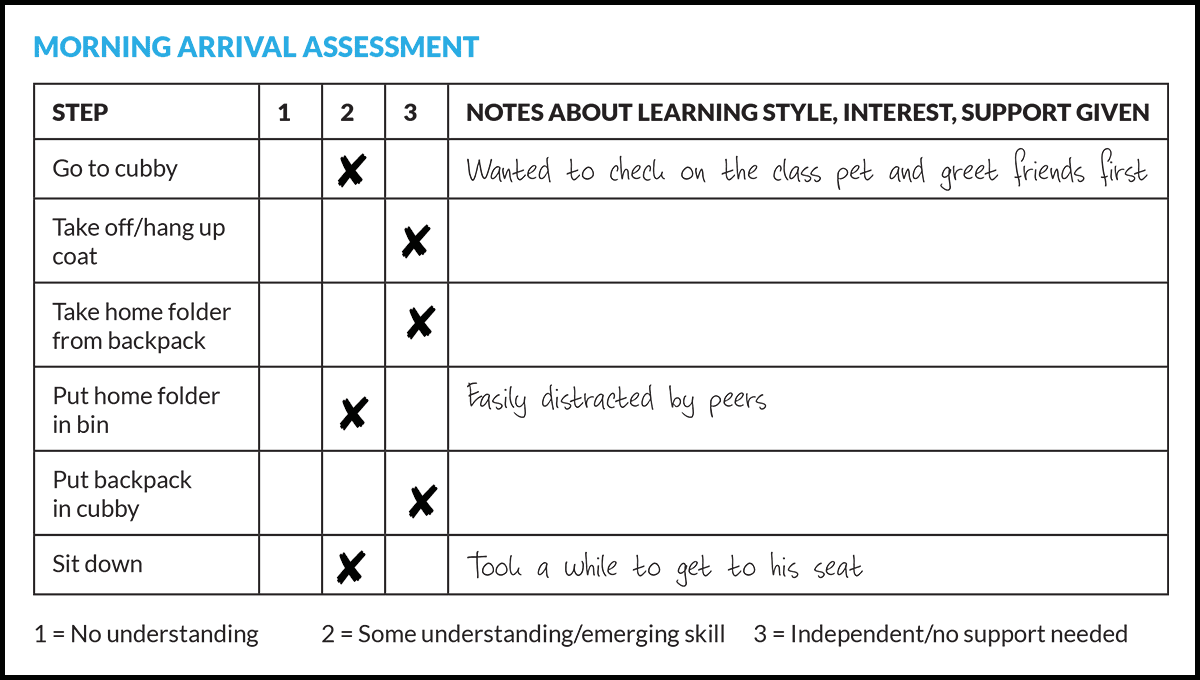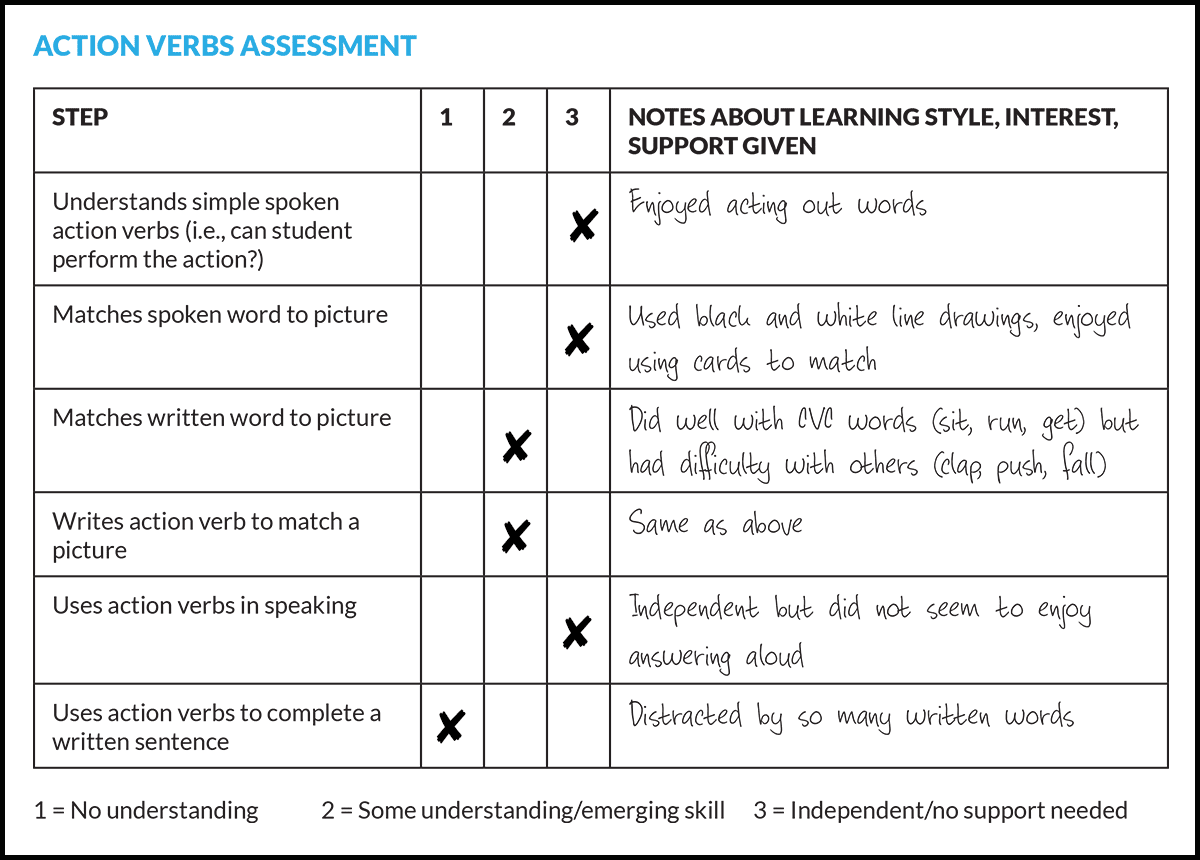
While formal assessments are valuable when planning student goals and in monitoring progress, informal assessments provide a wealth of detailed information that can direct how you plan and implement daily instruction for your students. Because informal assessments are not standardized, you have the flexibility to determine exactly what skills to assess and how to do so.An assessment of one skill can look different for each student, depending on their strengths, needs, and learning style. An informal assessment can be hands on (for example, providing materials and an initial prompt, then offering guidance depending on the student’s responses) or observational (learning about a student’s social skills by observing behavior at recess). The flexibility of informal assessments allows you to carry them out at any point during the school year, supplying a quick snapshot of a student’s skill in a specific area at any given time.
Because the information gained from informal assessments is highly specific to the student, it can be directly applied to creating individualized instruction for those with specialized needs. Not only can you learn about their particular strengths and needs, but you can see aspects of a student’s learning style. For example, do they respond well to prompting during the assessment? Are they a hands-on learner, wanting to manipulate materials as they work? Are they easily distracted by others or by excess items, details, or language? All of these elements can be assessed during this process and can help you understand how to set up your student for success as you plan your individualized instruction.
Task analysis is the process of taking a skill and breaking it down into discrete steps. By using a task analysis to assess a skill, you can learn specifically which steps of a process are strengths and areas of need for your student. With that knowledge you can target key actions with your instruction, possibly pulling out discrete steps to teach separately before expecting mastery of the entire skill. For a student who requires support around morning arrival, break down the skill into discrete steps and observe their behavior.

Here is an example:
You may learn through this assessment that your student is independent when putting items in their cubby but has difficulty putting their folder into the bin and getting to their seat. It becomes clear that they tend to socialize and get distracted by those around them. You can now target those particular areas of need in your instruction. Perhaps your student could benefit from the use of clear labels indicating where to put the folder or a visual reminder. Or perhaps they struggle with the transition to the folder bin, so you may consider relocating it closer to the cubbies. Maybe because they encounter too many distractions prior to sitting down, they would benefit from a simple reinforcer or motivating activity to do once seated. Any of these instructional strategies could increase the student’s independence during their morning routine.

Another way to implement an informal assessment is to take a broad skill and drill down to specific aspects of it. For example, when assessing a student’s understanding and use of verbs, many different elements can be considered. Do they understand (receptively) and use (expressively) verbs with equal skill? Do they accurately use verbs in speaking and writing? Can the student use action verbs as well as helping and linking verbs? Do they correctly use verb tenses? You may want to focus on only a few items at a time, like action verbs:
From this assessment, you get a clearer, more well-rounded picture of your student’s understanding and use of verbs. You also have the opportunity to observe their learning style as described earlier.
The next step is to apply this information to your instruction. If your student independently understands spoken verbs, but requires support to write the action verbs, consider how to focus and tailor your support to this specific aspect of the skill. If they are a hands-on learner, provide individual cards or tiles for each letter and have them construct each word. Have the student practice tracing the word before moving on to independently spelling it. Provide a written list to allow them to copy the given word. Remember to consider what you know about your student’s organization, distractibility, and work habits when planning these tasks as well.
The final valuable piece of information that you can gain from informal assessments is whether your student enjoys or is interested in a particular activity. Student interest and engagement is crucial for learning. With informal assessments, you can experiment with different materials, presentation of tasks, and modalities of responding to gauge how they engage with and respond to each. By tailoring your instruction to the elements that most interest your students, you are setting them up for success.
So, don’t hesitate to make informal assessment a routine part of your instructional planning. The information you gain will help you pinpoint what skills or steps to target, how to adjust your instruction, and how best to engage your student in the learning process. Each of these will help boost their academic achievement and personal growth, building pride and independence.
Becky Dees is an Educational Consultant who specializes in Autism Spectrum Disorder. She has worked as an autism clinician, an educational coach, and a special education trainer. Becky currently works with the autism group in research at the University of North Carolina at Chapel Hill. Becky received her degree in psychology from UNC‑Chapel Hill.

University of North Carolina at Chapel Hill